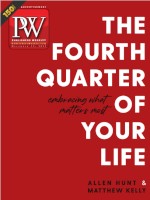When I mentioned to friends and colleagues that I was thinking of writing a memoir focused on my mother, they looked quizzical. Why would I bother switching genres after so many years writing successful fiction?
It’s often hard to tell where and why a project starts in a writer’s head, but I can pinpoint some beginnings.
My historical novel, Counting on Grace, was inspired by a Lewis Hine photograph of a little Vermont girl working in a textile mill. Although I fictionalized the child and created her life out of a combination of research and imagination, I continued to be haunted by the world-weary face in the photograph. Soon after I finished the novel, I went looking for Hine’s model, a girl named Addie Card, who married and divorced a fellow mill worker and died of lung cancer at the age of 93. Once the novel was published, I realized I knew more about Addie than I did about my own mother. Even though I wasn’t aware of it at the time, looking for Addie had begun to build my creative bridge from fiction to memoir.
I am descended from a writing family. My grandmother wrote unpublished memoirs; my great-granduncle, Theodore Roosevelt, managed to write close to 40 books while serving his country; his sister was a published poet; and my father and uncle, Stewart and Joseph Alsop, were widely read newspaper reporters. In an effort to forge my own path, I’d published under my middle name to avoid comparisons with my father, and I’d stuck to writing fiction for readers of all ages. But the day I realized that I knew next to nothing about my mother’s childhood in Gibraltar, her life during the war in London, and her whirlwind romance with my American father who’d joined the British Army, I began to imagine telling her story—one that had been overshadowed by her famous husband and his large, illustrious family.
I’ve always enjoyed and in fact been inspired by the research that fiction requires, whether it be for the tone in a historical novel or the setting in a contemporary one. I started by interviewing my mother with a tape recorder. At first she was mystified by my sudden interest in her past, but she soon warmed to the project and the stories began pouring out of her, rich in specific details. I traveled to places in England and Gibraltar, I unearthed documents from her basement, and I videotaped her with photo albums in her lap.
The greatest challenges I encountered in moving from fiction to memoir were the same I struggle with when starting a novel: I had to find the structure of the story, and hardest of all, the courage to narrate it. Before my father died of leukemia at the age of 60, he’d written his own memoir, Stay of Execution. Had I finally decided I was his writing equal and could tell his story, too, but from my point of view? Could I relate the story of my parents’ marriage while staying true to the often unhappy part I played in it?
In the end, I decided on a braided narrative, weaving together the challenges of caring for my mother, who was known as Tish, as she slipped into dementia, while at the same time bringing teenage Tish to life. By following the trail of my parents’ lives before their marriage, I came to know these two people as if they were characters in a novel, not the ones who would later bring me into the world. However, writing a memoir revealed to me emotional truths I’d previously avoided by handing them over to imagined characters.
The whirlwind wartime romance crashed into the reality of lives lived in the spotlight of Cold War Washington. My mother found solace in the bottle, and by the time I was born she’d retreated into her bedroom, leaving the daily care of us children to a succession of maids and housekeepers. When I came to write the second part of our shared story, I chose to drop the braided narrative, because I didn’t want the reader distracted by sympathizing with my mother. It was only in writing about my childhood that I came to understand how deeply I still resented the way her addiction to alcohol had left no room for me, her only daughter.
Writing through those feelings and out the other side allowed me to create a more nuanced portrait of my mother. Only when I had finished the book did I understand how clearly memoir revealed more to me about myself than all the research I’d done to find my parents.
Elizabeth Winthrop Alsop is the author of Daughter of Spies: Wartime Secrets, Family Lies, published in October by Regal House.



 Volume 269
Issue 52
12/12/2022
Volume 269
Issue 52
12/12/2022





